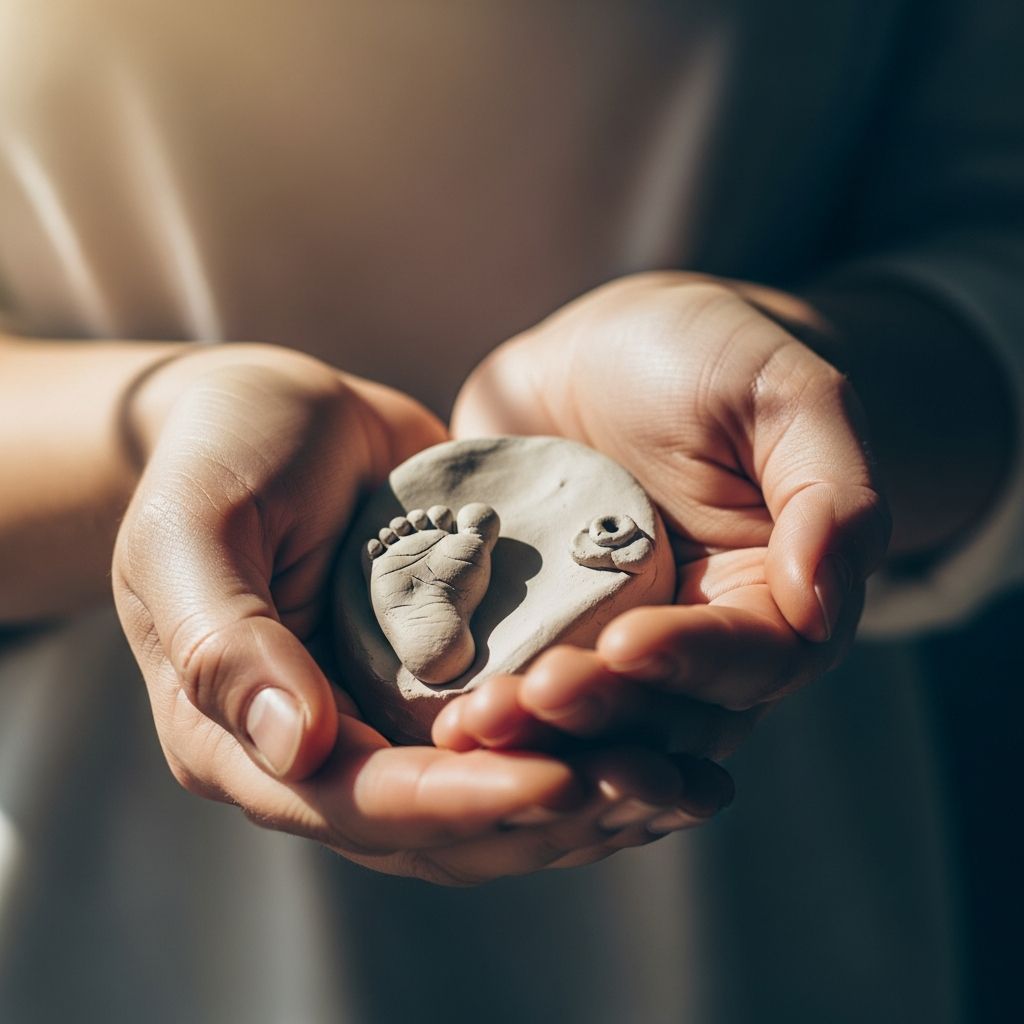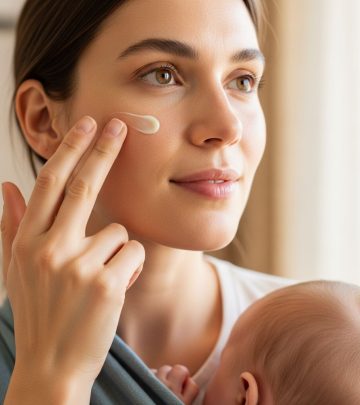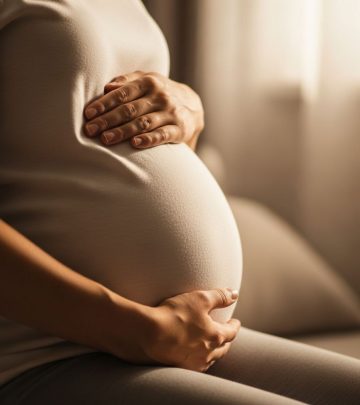Miscarriage Recovery: Essential Questions and Answers for Healing
Understanding emotional and physical recovery after a miscarriage, including medical facts, partner dynamics, and future planning.

Experiencing a miscarriage can be a physically and emotionally challenging ordeal. Many individuals find themselves with pressing questions as they begin the process of recovery. This article addresses the most frequently asked questions about miscarriage recovery, covering everything from physical symptoms and timelines to emotional support and planning for the future. Our goal is to provide expert answers, up-to-date medical facts, and compassionate guidance to help you move forward.
Understanding Miscarriage: What Is It and Why Does It Happen?
Miscarriage is the spontaneous loss of a pregnancy before the 20th week. While heartbreaking, it is a relatively common outcome—occurring in at least 10-20% of known pregnancies, though the true number may be higher due to losses that occur before a woman notices symptoms.
- Most miscarriages happen because the fetus is not developing normally, often due to chromosomal abnormalities that occur at conception.
- Other causes may include hormone problems, uterine abnormalities, infections, or lifestyle factors, though these are less common.
- Activities such as exercise, sexual intercourse, or minor injuries almost never cause miscarriage.
Spotlight: How Common Is Miscarriage?
| Gestational Age | Estimated Risk of Miscarriage |
|---|---|
| 0 to 6 weeks | Up to 50%* |
| 7 to 12 weeks | 10-20% |
| 13 to 20 weeks | <2% |
*Many losses this early occur before a woman realizes she’s pregnant.
Physical Recovery After Miscarriage
How Long Does It Take to Recover Physically?
The physical recovery period after a miscarriage varies, but most women return to their usual activities within a few days to two weeks, depending on how far along the pregnancy was and whether surgical intervention was needed.
- Vaginal bleeding typically lasts from a few days up to two weeks.
- Ovulation may occur as soon as two weeks after a miscarriage, with menstrual periods resuming within four to six weeks.
- Recovery may take longer after later losses or if complications such as infection occurred.
What Physical Symptoms Should I Expect?
- Bleeding or spotting, sometimes with clots, for up to two weeks following the miscarriage.
- Abdominal cramping similar to menstrual cramps, usually easing within a few days.
- Breast tenderness may linger for a week or two then gradually disappear as pregnancy hormones decrease.
- Physical fatigue as your body recovers.
Each person’s experience is unique, and the timeline can differ based on gestational age and individual health.
When Should I Call My Healthcare Provider?
- If you experience heavy bleeding (using more than two pads per hour for more than two hours), severe pain, fever, chills, or foul-smelling vaginal discharge, contact your provider immediately. These could be signs of infection or retained tissue.
- If emotional distress feels overwhelming or persistent, reaching out for mental health support is essential.
Emotional Recovery After a Miscarriage
How Long Will I Feel This Way?
Emotional recovery has no set timeline. Some women begin to feel better within weeks, while others need months or even longer. The range and intensity of emotions after pregnancy loss—grief, sadness, anger, or guilt—are normal and can change quickly. Healing emotionally is a highly individual process.
Is What I’m Feeling Normal?
- Grief over the loss of a pregnancy, no matter how early or late, is common and valid.
- Feelings of guilt or self-blame are natural, but rarely justified—most miscarriages happen due to reasons outside your control.
- Anxiety or sadness may return when triggers appear, such as due dates, baby announcements, or returns to familiar routines.
How Can I Cope and Heal?
- Allow yourself to grieve, and don’t rush the healing process.
- Lean on supportive friends, family, or counseling professionals.
- Consider joining miscarriage or pregnancy loss support groups—in person or online.
- Practice self-care: maintain routines around nutrition, rest, movement, and relaxation.
- Marking the experience through writing, ritual, or ceremony can also offer comfort and closure.
Advice for Partners, Family, and Friends
- If you are a partner, acknowledge that everyone grieves differently. Open discussion and patient listening help couples navigate this together.
- Offer reassurance and avoid trying to “fix” feelings—simple presence and empathy often help most.
- When supporting someone, avoid comments that diminish their grief or suggest that they “move on.”
Miscarriage and Partners: Navigating Relationship Dynamics
Why Might I Feel My Partner Is Grieving Differently?
Women often form a strong emotional bond early in pregnancy, while partners may connect later, sometimes after feeling a baby’s movement. Most miscarriages occur before 20 weeks, so it’s not unusual for each partner to experience different levels of attachment—and therefore, different types of grief. Men and women may also process loss in unique ways, influenced by personal coping styles and cultural expectations.
- Some may need to talk openly, while others prefer private reflection or distraction through activity.
- It’s important to respect each other’s emotional needs and grieving timelines.
What Can We Do to Heal as a Couple?
- Communicate regularly about feelings, even if you grieve in different ways.
- Support, rather than judge, each other’s coping strategies.
- Discuss together how to inform other children about the loss and involve them if appropriate.
- Acknowledge that it’s okay to wait before trying again. The decision to conceive again is personal, and only you two can know when—or if—you’re ready.
Frequently Asked Questions on Miscarriage Recovery
How Soon Will My Period Return?
After a miscarriage, your period usually returns within four to six weeks. Ovulation may occur even sooner, so contraception is important if you wish to delay conception.
How Soon Can I Try to Conceive Again?
You may physically be able to get pregnant as soon as two weeks after a miscarriage, but many doctors recommend waiting until after at least one normal menstrual cycle to promote emotional and physical recovery. Discuss personalized timing with your provider.
Does Having a Miscarriage Mean I’m More Likely to Have Another?
Not usually. About 85% of women who experience one miscarriage go on to have healthy pregnancies. The risk for more than one miscarriage in a row is lower, but women who have had two or more should see a specialist for evaluation and guidance.
Will a Miscarriage Affect My Future Fertility?
- In most cases, miscarriage does not impair future fertility.
- Contact your doctor if you have more than two miscarriages in a row or have difficulty conceiving again.
- Testing may be recommended to rule out underlying health conditions if recurrent loss occurs.
Can I Do Anything to Prevent Another Miscarriage?
- Most risk factors are not within a person’s control.
- Maintaining a healthy lifestyle—such as avoiding smoking, excessive alcohol, and illicit drugs—may support overall reproductive health.
- If you have specific medical conditions (e.g., diabetes or thyroid disorders), work with your healthcare provider to optimize management before conceiving again.
How Should We Tell Our Other Children?
Communicate openly in an age-appropriate manner. Picture books for children or working with a grief counselor can help younger children understand and express their feelings.
FAQ: Fast Facts on Miscarriage Recovery
Q: Is it safe to have intercourse after a miscarriage?
A: Wait until bleeding stops to reduce the risk of infection, and ensure you feel physically and emotionally ready.
Q: What follow-up care do I need?
A: Most doctors schedule a follow-up exam within two to six weeks after a miscarriage to check for physical recovery and discuss emotional health.
Q: When should I seek professional grief support?
A: If you experience prolonged sadness, depression, anxiety, or persistent intrusive thoughts, seeking counseling or joining a support group can be very helpful.
Q: Can I honor or memorialize my lost pregnancy?
A: Yes. Many families find comfort in planting a tree, writing letters, creating artwork, or participating in remembrance ceremonies.
Tips for Self-Care and Moving Forward
- Hydrate, nourish your body, and get rest.
- Incorporate gentle physical activity as you feel able; movement such as walking or yoga can help both physically and emotionally.
- Treat yourself with the same compassion you would offer a dear friend.
- Mark milestones if it feels right—anniversaries, special dates, or rituals can support the grieving process.
- Seek medical and emotional support as needed and know that recovery is a journey unique to you.
Resources for Additional Support
- Grief counseling and therapy (individual or couples counseling)
- Pregnancy loss support groups (in person or online)
- Books and online resources tailored for different ages, partners, and family dynamics
Key Takeaways
- Most miscarriages are not preventable and occur because the fetus is not developing normally.
- Physical symptoms resolve within weeks, but emotional healing may take longer
- Most people can conceive again and go on to have healthy pregnancies
- Support from partners, family, and professionals is valuable in the healing process.
- It is always appropriate to seek help when you need it, both physically and emotionally.












